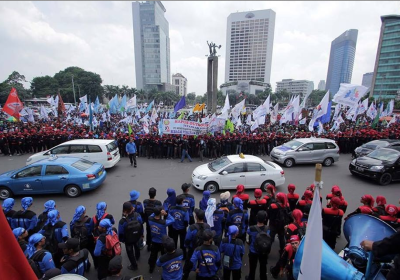
Masses of Indonesian workers took strike action across the country on October 6–7 against a new employment law, writes Susan Price.

Masses of Indonesian workers took strike action across the country on October 6–7 against a new employment law, writes Susan Price.
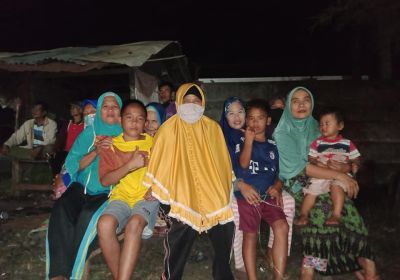
Mining-affected communities, NGOs and environmental activists are organising across the country to oppose Indonesia's new mining laws, which were secretly ratified during the COVID-19 lockdown, writes Pius Ginting.
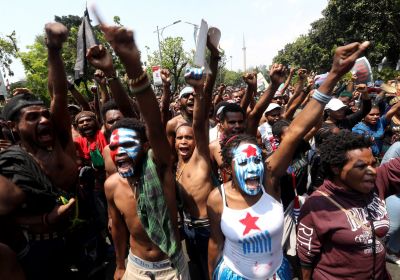
Rights groups have slammed a last-minute decision by the Indonesian authorities to deny parole to five Papuan activists jailed on charges of treason over a peaceful protest in August last year, writes James Balowski.
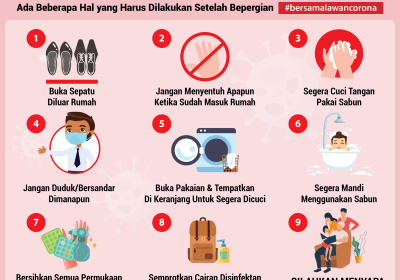
While news reports on Indonesia’s response to COVID-19 refer to its lack of health infrastructure and trained medical staff, this does not reflect the real improvements in primary health care over two decades, writes Rebecca Meckelburg.
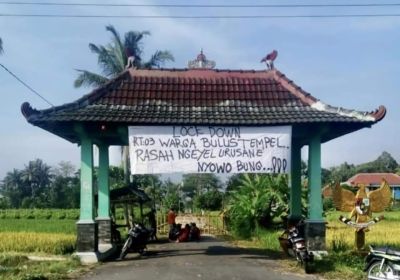
Indonesia, which does not have the infrastructure for small-scale, let alone, mass testing is covering up the figures on COVID-19 transmission, reports Rebecca Meckelburg.
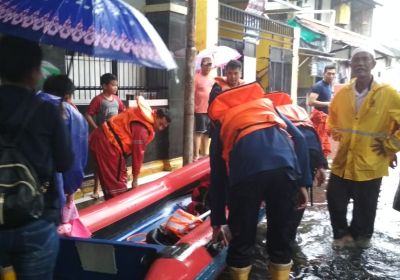
While the stark reality of the global climate emergency struck home in Australia with its worst bushfire season, its neighbour Indonesia faced catastrophic floods and islands disappearing below the rising sea. Green Left's Peter Boyle interviewed Friends of the Earth Indonesia climate change campaigner Yuyun Harmono about the situation.
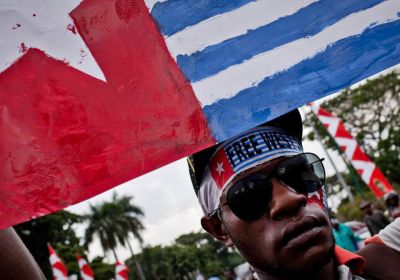
Indonesian People’s Front for West Papua (FRI-West Papua) spokesperson, Surya Anta was arrested in Jakarta on August 31 and accused of “subversive” acts in relation to his advocacy for West Papua.
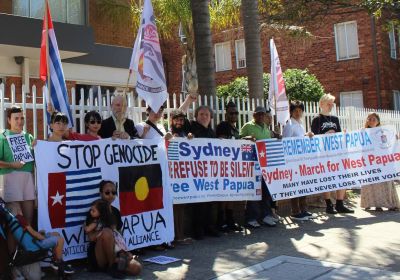
Free West Papua campaigners rallied in several cities on February 12.
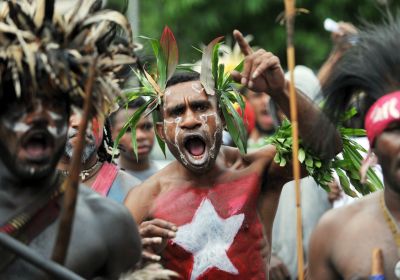
New Zealand solidarity activist Maire Leadbeater’s new book, See No Evil: New Zealand’s betrayal of the people of West Papua, features a theme also relevant for Australia. Both countries were involved in the tragic betrayal of West Papua.
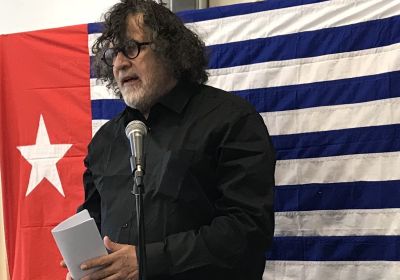
Melbourne researcher into satellite-communication and surveillance Jacob Grech claims Australia is ramping up arms exports to Indonesia at a time when Indonesia is stepping up its militarism in West Papua.